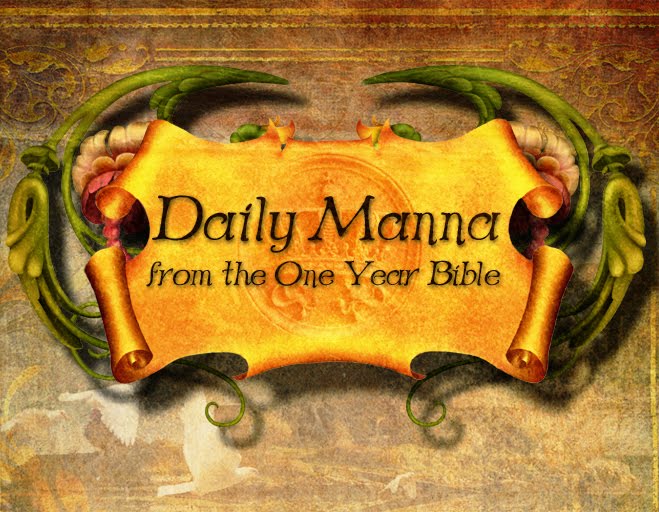I'm going to tell you what I saw today in the reading, and then you can go to the Word with it and hash it out with the Lord. I'm not trying to establish your doctrine here, I'm just trying to challenge you to think about what you're reading, and to think about why you think what you think about it.
If you read the New King James, you may not notice this paradox. This is what I read in my version: "But there will be no poor among you (for the LORD will bless you in the land which the LORD your God gives you for an inheritance to possess), if only you will obey the voice of the LORD your God, being careful to do all this commandment which I command you this day. For the LORD your God will bless you, as he promised you, and you shall lend to many nations, but you shall not borrow; and you shall rule over many nations, but they shall not rule over you." Deuteronomy 15:4-6 RSV
In the next verse, we get the paradox: "If there is among you a poor man, one of your brethren, in any of your towns within your land which the LORD your God gives you, you shall not harden your heart or shut your hand against your poor brother, but you shall open your hand to him, and lend him sufficient for his need, whatever it may be." Deuteronomy 15:7-8 RSV
It goes on to show the attitude we should have, and talks more about the release year, the seventh year.
More of the paradox follows: "For the poor will never cease out of the land; therefore I command you, You shall open wide your hand to your brother, to the needy and to the poor, in the land." Deuteronomy 15:11 RSV
It seems to me that some of the translators, including the NKJV, had a difficult time is accepting this paradox, so they wrote but you shall give up your claim to what is owed by your brother, except when there may be no poor among you; for the LORD will greatly bless you in the land which the LORD your God is giving you to possess as an inheritance 15: 3-4 NKJV. This "except" just doesn't make a lot of sense. To me the opposites do make sense, because we see this kind of paradox all the time in Scripture.
God is saying that there will be no poor among you and that there will always be poor among you, at the same time, in the same chapter even. Why is this?
Considering there is an "if only" clause in that promise, I can totally see why we not only always have some poor people among us, in our nation and in the Church, we have an amazing number of poor people. Could it possibly be that we ignore clear directions given us by the Lord?
I remember how the Lord, years ago, cut loose our finances when we began to obey His commandment not to charge interest on loans (within the family~ and we take that spiritually too). I'm not sure if we've come up to the seven year release date on any debts yet, and we may not have had that revelation at the time. But I see it now, and will live up to it if it comes up [Usually, I just give expecting nothing in return]. This may be Old Testament stuff, but didn't Jesus come to fulfill the Law and not abolish it? There are principles that we may walk in and begin to experience the kind of blessing that was promised. He shows us His desires, what He loves and what He hates, and He shows us how to fulfill love and righteousness. If we would start to study the Word to find out how to do that, I think we'd find out how to get rid of poverty.
In the Old Testament, we see promises about being free from poverty, sickness, oppression, etc. In the New Testament, we are given everything we need in order to walk in these promises. Jesus is the Way, the Truth and the Life. He demonstrated the same truth that was given in the Old Testament. His principles go beyond the Old Testament, go deeper and higher, into the heart and into the unseen realm. There is no reason why we should not walk in His promises, except that we don't know, we don't understand, or we don't believe.
As the Lord stated, everyone will not get a hold of His truth and promises, even though He desires that they do. But that should not stop you from getting a hold of them. If you believe God's Word and walk in it, and you demonstrate God's love to people the way Jesus did, not only will you see the effect of His promises in your life, you may also be able to help others get a hold of the promises for themselves who may not have otherwise.
Questions to Ponder:
How is debt affecting you? How is it affecting this nation?
What was Jesus getting at when He taught us to pray: "And forgive us our debts, as we forgive our debtors." Matthew 6:12 NKJV
Is there any possibility that poverty is related to unforgiveness? Why or why not?
Subscribe to:
Post Comments (Atom)






No comments:
Post a Comment